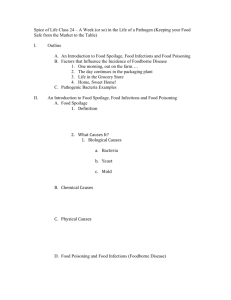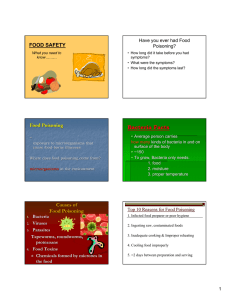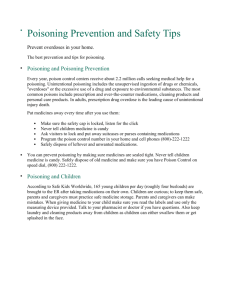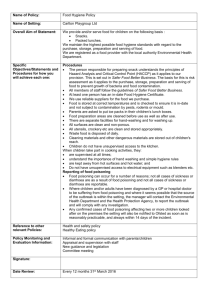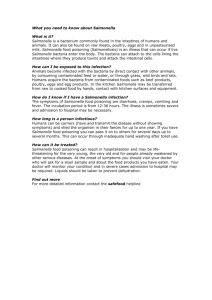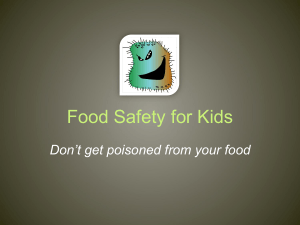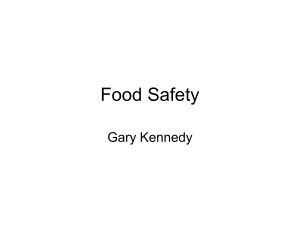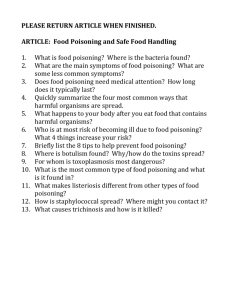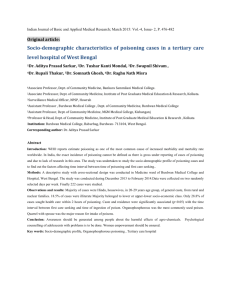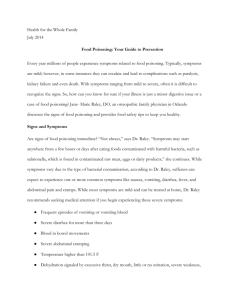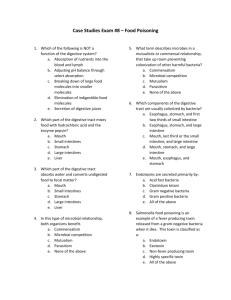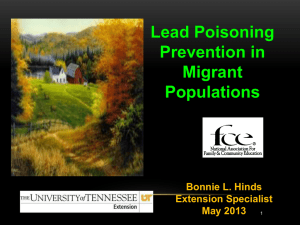HERE - Peterson Regional Medical Center
advertisement
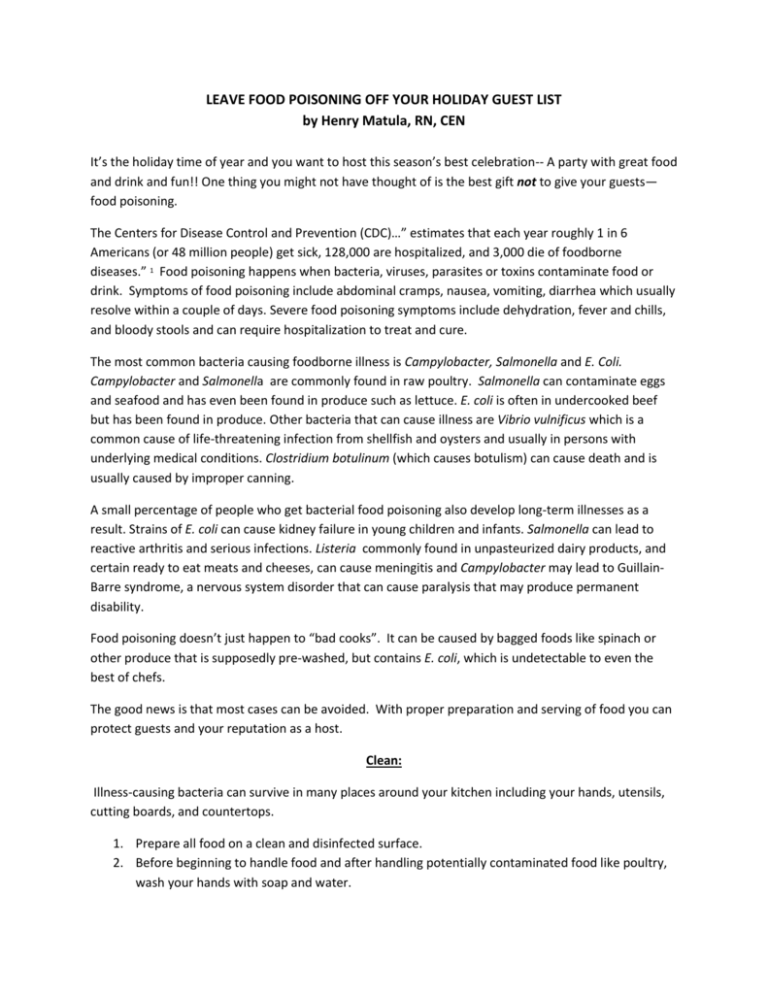
LEAVE FOOD POISONING OFF YOUR HOLIDAY GUEST LIST by Henry Matula, RN, CEN It’s the holiday time of year and you want to host this season’s best celebration-- A party with great food and drink and fun!! One thing you might not have thought of is the best gift not to give your guests— food poisoning. The Centers for Disease Control and Prevention (CDC)…” estimates that each year roughly 1 in 6 Americans (or 48 million people) get sick, 128,000 are hospitalized, and 3,000 die of foodborne diseases.” 1 Food poisoning happens when bacteria, viruses, parasites or toxins contaminate food or drink. Symptoms of food poisoning include abdominal cramps, nausea, vomiting, diarrhea which usually resolve within a couple of days. Severe food poisoning symptoms include dehydration, fever and chills, and bloody stools and can require hospitalization to treat and cure. The most common bacteria causing foodborne illness is Campylobacter, Salmonella and E. Coli. Campylobacter and Salmonella are commonly found in raw poultry. Salmonella can contaminate eggs and seafood and has even been found in produce such as lettuce. E. coli is often in undercooked beef but has been found in produce. Other bacteria that can cause illness are Vibrio vulnificus which is a common cause of life-threatening infection from shellfish and oysters and usually in persons with underlying medical conditions. Clostridium botulinum (which causes botulism) can cause death and is usually caused by improper canning. A small percentage of people who get bacterial food poisoning also develop long-term illnesses as a result. Strains of E. coli can cause kidney failure in young children and infants. Salmonella can lead to reactive arthritis and serious infections. Listeria commonly found in unpasteurized dairy products, and certain ready to eat meats and cheeses, can cause meningitis and Campylobacter may lead to GuillainBarre syndrome, a nervous system disorder that can cause paralysis that may produce permanent disability. Food poisoning doesn’t just happen to “bad cooks”. It can be caused by bagged foods like spinach or other produce that is supposedly pre-washed, but contains E. coli, which is undetectable to even the best of chefs. The good news is that most cases can be avoided. With proper preparation and serving of food you can protect guests and your reputation as a host. Clean: Illness-causing bacteria can survive in many places around your kitchen including your hands, utensils, cutting boards, and countertops. 1. Prepare all food on a clean and disinfected surface. 2. Before beginning to handle food and after handling potentially contaminated food like poultry, wash your hands with soap and water. 3. Clean surfaces that come in contact with food often. 4. Use hot water and soap to clean work areas. Cook to the Right Temperature: 1. Ground beef should be cooked until it is no longer pink inside. 2. Always use a meat thermometer to determine if meat is done—there’s no way to be sure if it’s safe without using a food thermometer. Chill: Bacteria causing food poisoning can grow in foods within 2 hours unless refrigerated (less in summer heat). Refrigerate foods within 2 hours of cooking. Serve/Drink: Drink only eggnog or apple cider that has been pasteurized. Don’t drink beverages that are made with raw eggs and not pasteurized. Food Gifts: If you receive a food gift that is perishable (meats, cheeses, fruits and cheesecakes) refrigerate them immediately. It if is labeled “keep refrigerated”, make sure it is still chilled when it arrives. Buffets: Keep cold foods cold and hot foods hot. As the host, it helps to keep the buffet portions small and replenish as necessary so that the food doesn’t sit out long. What to Do if You Do Get Sick in Spite of the Above: 1. For mild cases, drink plenty of liquids. Eat bland foods and food with salt to replace or prevent dehydration. 2. Seek treatment emergently if your symptoms are severe, especially the immune compromised, diabetics, heart patients, children and the elderly. 3. If you feel you are suffering from food poisoning and aren’t feeling better within several days, contact your doctor to avoid complications. The holidays can be a time of great fun, food and family!! Be wise--Don’t invite the Food Poisoning Grinch to your Table!! 1 Estimating Foodborne Illness: An Overview, pg. 1; www.cdc.gov/foodborneburden/estimatesoverview.html
